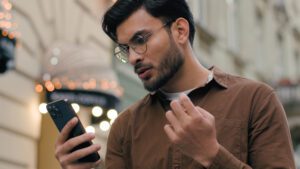
- Platform
Platform
Learn how Pindrop® Solutions are safeguarding contact centers and beyond, with secure authentication and fraud detection tools.
PRODUCTS
CAPABILITIES
- Solutions
Solutions
Our solutions meet the voice security needs of contact centers in various industries, taking a comprehensive approach to fraud detection, deepfake detection, and authentication.
BY NEED
By industry
- Partners
Partners
Combat security threats with effective authentication and fraud detection—directly in your current contact center technology.
- Research + Insights
- Company
Company
In a digital world where human and machine converge, Pindrop provides the tools to answer one critical question: Who’s really on the other end?
- Schedule a call




















